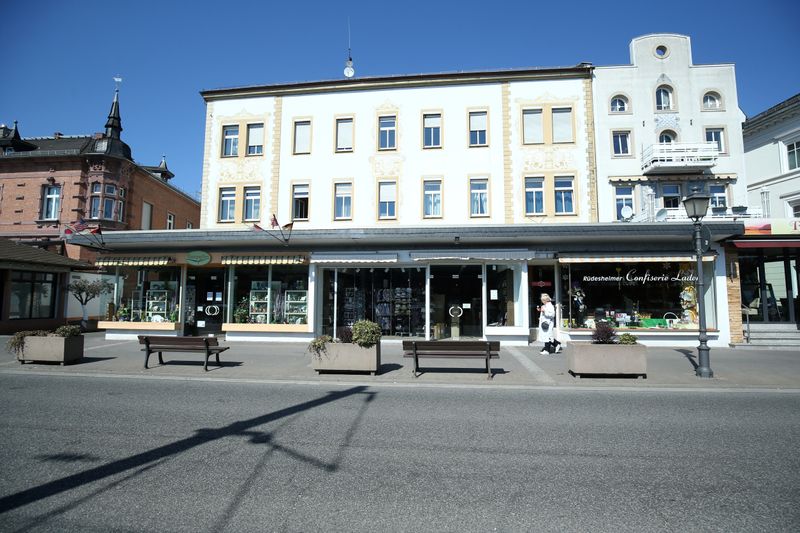By Markus Wacket
BERLIN (Reuters) - Germany has drawn up a list of steps, including mandatory mask-wearing in public, limits on gatherings and the rapid tracing of infection chains, to help enable a phased return to normal life after its coronavirus lockdown is set to end on April 19.
A draft action plan compiled by the Interior Ministry and seen by Reuters on Monday, says the measures should be enough to keep the average number of people infected by one person below 1 even as public life is allowed gradually to resume.
Germany has been under lockdown, with restaurants and most shops closed, since March 22. With the impact all but certain to tip the country into recession this year, policymakers are anxious to see normal life resume.
But while restrictions will ease, it could be a long time before things fully return to normal.
"Even if some people are demanding it, the government can't yet give an exit day, a firm date from which everything will be different and the measures relaxed," government spokesman Steffen Seibert told a news conference.
The document envisages a staged return to normality, backed by mechanisms that will make it possible to track more than 80% of people with whom an infected person had contact within 24 hours of diagnosis. Infected people and those they had contact with will be quarantined, either at home or in hotels.
The document assumes the pandemic will last until 2021.
In return, shops will be allowed to reopen, as well as schools in select regions, though strict social-distancing measures will still be in place.
Strict border controls will be relaxed, but large events and private parties will remain forbidden.

As soon as enough protective masks are available, it will be made compulsory to wear them on trains and in buses as well as in factories and public buildings.